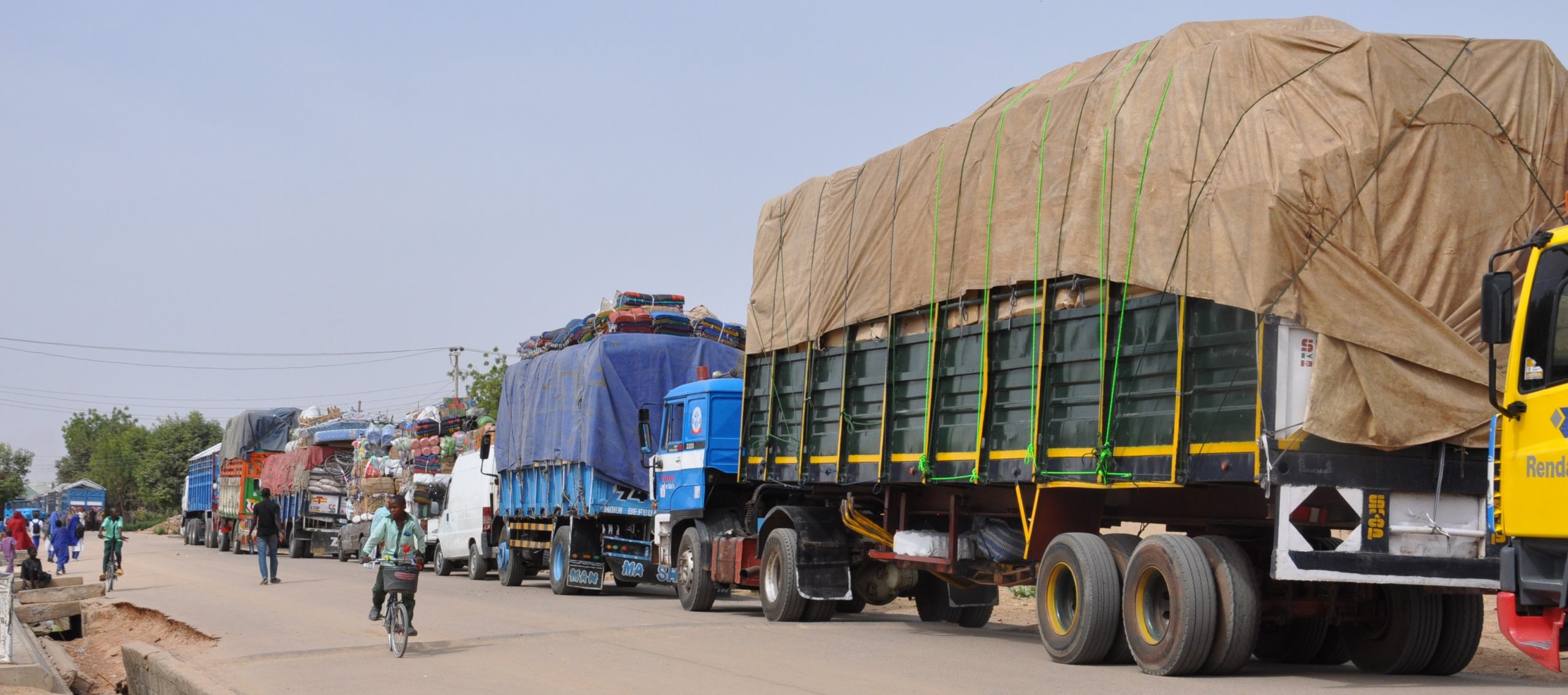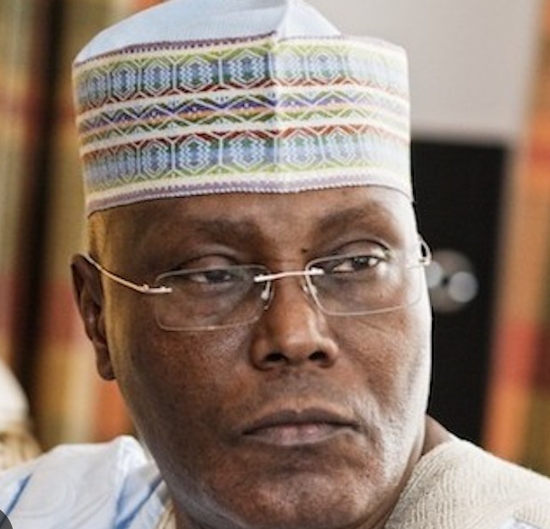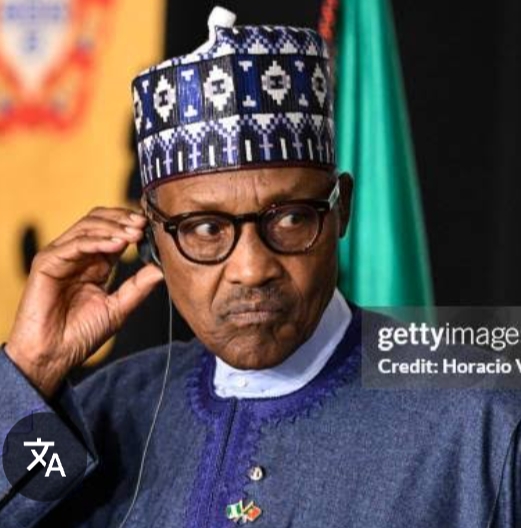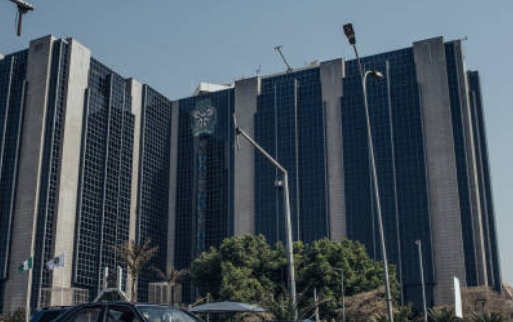News
Food smuggling: FG intercepts 141 grain trucks, drivers threaten strike over attacks

In continuation of measures to address the food inflation and cost of living crisis, the Federal Government Tuesday said it had so far intercepted 141 trucks attempting to smuggle grains and other staples to Niger Republic, Chad, Cameroon, and the Central African Republic.
The Comptroller-General of the Nigeria Customs Service, Bashir Adeniyi, said that the service had within two weeks arrested about 120 trucks smuggling food items from Nigeria while the Economic and Financial Crimes Commission stopped 21 food trucks from leaving the country on Tuesday.
As the CG was disclosing the measures being enforced to ensure food security at the House of Representatives in Abuja on Tuesday, truck drivers, who have been targets of attacks by hoodlums, had threatened to declare a strike if the situation persisted.
Several trucks and warehouses, mostly owned by manufacturers and other members of the organised private sector have come under attack from hoodlums as the food inflation and the cost of living crisis in the country spiralled.
Last week, some youths stole food items from trucks stuck in traffic along the Kaduna Road in the Suleja area of Niger State.
On Sunday, hoodlums attacked a warehouse belonging to the Agricultural and Rural Development Secretariat of the Federal Capital Territory Administration located in the Dei-Dei area of the capital city where they looted rice, grains, and other relief items.
The miscreants in their numbers also stormed another warehouse in the Idu Industrial Estate, Jabi, Abuja, but were repelled by the troops guarding the facility.
Similarly, another set of youths attacked trucks conveying building materials and spaghetti in Ogun and Kaduna states on Saturday and Sunday, respectively.
Worried by the unsavoury development, the organised private sector warned the attacks could lead to a shutdown of industries across the country.
Briefing the federal lawmakers on the enforcement of the Presidential directive to curtail food smuggling during the sectoral debate series, the Customs CG, Adeniyi, said President Bola Tinubu had given a directive that the arrested trucks be diverted to the local markets in the area where they were arrested to force down the prices of grains and other food items.
“We arrested in two weeks about 120 trucks of food items going out of the country. These are the food items Mr President has asked us to give back to the local markets where the arrests were made. We believe this will drive down the price of food items in these places,” he added.
He stated that the decision to halt the smuggling of food items was to fight hunger and not encourage those who wanted to enrich themselves at the expense of the people.
He warned against adopting quick-fix solutions to address the food scarcity in the country, adding that the country must put in place long-term measures to address the situation.
Adeniyi explained that the Customs were playing their part in ensuring that the problem of food security was addressed, adding that currently, most agriculture inputs attract zero duty and the value-added tax.
The CG noted that the need to learn from lessons learnt while auctioning seized food items in Lagos was the reason the service was ha to commence the program outside Lagos State.
About seven persons died in a stampede at the NCS Old Zonal Headquarters in the Yaba area of Lagos State during the auction of bags of rice confiscated from smugglers by the NCS last month.
The incident forced the authorities to suspend the exercise.
Bringing the lawmakers up to speed on the public auction, Adeniyi said President Tinubu directed the NCS to auction to vulnerable Nigerians the food items intercepted at the Nigerian borders, noting that the implementation of the programme kicked off in Lagos, but was stopped.
Adeniyi further said the seized foodstuffs were to be sold to the local markets nationwide on the President’s orders.
He said, “Mr President has directed that we sell directly to needy Nigerians food items produced locally but which were seized. This is one of the ways to address hunger and food scarcity we are facing. We have started this in Lagos.
“Also, the President has also directed that imported food items seized by the Nigeria Customs Service should be sold back to the local markets for resale to Nigerians.”
Fielding questions from lawmakers during the session presided over by Deputy Speaker, Benjamin Kalu, Adeniyi gave reasons why the auction of seized grains was temporarily discontinued by the NCS.
“We started in Lagos but you know what happened. There was a stampede. No matter the number of bags of rice you share or sell, it will not be enough.
“We have to focus on one place at a time. We will use the lessons we learnt in Lagos to coordinate this programme when we resume,” he said.
In their enforcement of the Presidential directive against food smuggling, operatives of the Maiduguri zonal command of the EFCC have arrested 21 trucks loaded with food and non-food items heading towards N’djamena, Chad Republic, Central African Republic, and Cameroon.
The Head of Media and Publicity, EFCC, Dele Oyewale, said in a statement on Tuesday, that the trucks were intercepted in a sting operation at major exit routes along Kalabiri/Gamboru Ngala and Bama Roads, Borno State.
It said, “Investigation showed food items cleverly concealed in the trucks that would have gone undetected but for the eagle-eyed vigilance of operatives of the commission.
“Further checks showed that the waybills covering the goods carried by trucks indicated their destinations as N’djamena, Chad Republic, Central Africa Republic, and Cameroon, respectively.
Meanwhile, the Minister of Agriculture and Food Security, Abubakar Kyari, on Tuesday said that food scarcity came too early this year, noting that “It often rears its head in May/June but it came quite early this time.’’
This was just as he blamed the food scarcity being experienced across the country on smuggling, flooding, the naira redesign policy and the COVID-19 pandemic which ravaged the world in 2019 and 2020.
Speaking at the sectoral debate series at the House of Representatives on Tuesday, Kyari noted that the naira redesign policy implemented by the government of Muhammadu Buhari denied small-scale farmers access to cash to pay for their harvest towards the end of 2022 as well as pay for cultivation during the commencement of the wet season.
He asserted that the insecurity in the country culminated in low cultivation of land as many farmers were displaced from their communities.
To address the challenges being faced by farmers nationwide, Kyari assured Nigerians that President Tinubu had mandated the agric ministry to make grains available both for cultivation and consumption.
“We have engaged the World Food Programme to help stabilize prices. We also asked them to assist our farmers to produce more food.
“But we want our farmers to take advantage of irrigation facilities to do all-season farming and the President has been very supportive of this,” he said.
The minister noted that so far, “About 5,000 tractors are working in Nigeria,” adding that the nation needs “72,000 functional tractors to meet the growing needs of Nigerians.”
He added that the ministry had signed a Memorandum of Understanding with a manufacturer to supply 2, 000 tractors annually for the next five years.
In a development that could compound the social and economic situation in the country, truck owners involved in the haulage of food and fuel have declared that they may stop transporting the commodities following the incessant attacks on their vehicles by hoodlums.
The National President of the Nigerian Association of Road Transport Owners, Yusuf Othman, in an interview with The Press on Tuesday, said the truck drivers might withdraw their services if the attacks and looting of food trucks continued.
He called on the state governments to address the looting of trucks, adding that the looted food items were not insured by their owners.
In an interview with The Press on Tuesday, Othman said the recent attacks had severely impacted their operations negatively.
He stated, “We are affected negatively by these attacks and right now we are strategizing. It might interest you to know that the insurance we get does not cover riots or such fracas.
“So, we are appealing to the general public to avoid such attacks on our trucks. This is because if such kind of attacks continue, what will happen is that transporters will stop carrying food items and this will lead to food scarcity across the country.
“If you are transporting food and somebody stops you on the road and loot the food items, what will you do?”
The NARTO president expressed worries about the inadequate security on the roads, stating that the truck owners would stop operations if the attacks on truck drivers did not abate.
“We just have to stop transporting the food items, until something is done about it. Security has to be enforced. The various state governments need to act now to reduce the suffering of their citizens because this is not entirely a Federal Government issue.
“The state governments must be able to curb these concerns because it is usually the local people in states that attack our trucks and cart away food items in these trucks,” Othman stated.
On whether NARTO had commenced any form of discussion with state governments on the issue, Othman replied in the negative, stressing that some of these attackers also targeted fuel tanker drivers.
He, however, stated that the association had met with security agencies over the issue and again pleaded with the public to desist from attacking trucks transporting food and other products.
The transporter said, “As for state governments, we have not met with them because we don’t have direct access to interface with them, but are discussing with some security agencies how best to avoid this kind of incident. It is not good for everyone.
“It can threaten the distribution of food because if you load (goods) and somebody is going to stop you on the road to loot the goods, why will you continue to load? And mind you, it is not only trucks that are transporting food that they attacked.’’
Speaking further on the attacks on tanker drivers, Othman explained, “For the fuel that we load, sometimes when these trucks break down, you will see locals coming to open the tanks by force to scoop the fuel.
“If a fire breaks out during such an instance, people will attribute it to fallen trucks, not knowing that it was the locals who forced the tanks open to scoop fuel.’’
“So, it is high time people realised that as much as we appreciate the situation of the country, they must know that two wrongs can’t make a right. There is the need to address these things holistically so that we get a lasting solution,” he stated.
News
Kill your 2027 election, PDP, LP chieftains advise Atiku

By Kayode Sanni-Arewa
A member of the National Executive Committee of the Peoples Democratic Party, Diran Odeyemi, and a chieftain of the Labour Party, Anslem Eragbe, have advised former Vice President Atiku Abubakar to kill his 2027 presidential election ambition.
Both Odeyemi and Eragbe said the South should be allowed to rule for eight years.
They said the 2027 southern president might not necessarily be President Bola Tinubu.
Eragbe, in an interview with Sunday PUNCH, argued that Atiku should not have contested the 2023 presidential election because it was the turn of the South to produce a president.
He said, “Atiku was not supposed to contest the 2023 presidential election because it was the turn of southern Nigeria. It is the turn of the South till 2031.
“Being a former Vice President of Nigeria for eight years; Atiku knows Nigeria’s power drill and equation. He should support younger Nigerians to power and provide guidance in 2027.”
Asked if the former Vice President would breach any law if he chooses to run for the nation’s highest office in 2027, Eragbe said the PDP stalwart “is entitled to his ambition and aspirations, adding however that “2027 – 2031 is for southern Nigeria.”
According to him, the 2027 presidency shall remain in southern Nigeria and should be zoned to the South-South region.
“It should be further micro-zoned to the (defunct) mid-Western region. I mean the defunct Bendel, now Edo and Delta states. We expect the major political parties to do this for equity, justice, fairness and parity.
“However, should President Bola Tinubu, win the 2027 presidential election and continue till 2031, power shall return to Northern Nigeria,” he added.
The former President of the Student Union Government of Ahmadu Bello University, Zaria, added that when compared with other geo-political zones in the country, the South-South had spent the least number of years on the presidential seat.
“The region that has ruled the least in Nigeria is the South-South with only five years under Goodluck Jonathan and should rule Nigeria again beginning from 2027.
“When put together, the North-Central spent a total of 17 years and 11 months, North-West, 17 years, three months; North-East, 10 years, three months; South-West, 15 years, four months by the time Tinubu finishes his term in May 2027; South East spent five years and nine months and the South-South, the only region to spend five years only on the presidential seat,” he added.
Eragbe called on the political parties to identify credible politicians, regardless of their financial status, to fly their flags for the various elective offices, stressing that 2027 would be another opportunity to right the wrongs of the past.
Speaking with Sunday PUNCH, Odeyemi stated that the ex-vice president’s participation in the 2023 presidential election and his perceived ambitions for 2027 were the causes of PDP crisis.
He charged Atiku to bury his ambition, adding that once the former vice president failed to declare interest in 2027, the crisis in the party would be over.
The 2023 election was originally supposed to be between southerners, as former President Muhammadu Buhari, a northerner, had just completed eight years in office. However, Atiku insisted on exercising his rights, which is why there is a crisis in the PDP,” he stated.
News
Why Buhari govt was shoved aside – IBB

By Kayode Sanni-Arewa
Ex-military head of state, Ibrahim Badamasi Babangida (IBB), has stated that he shoved aside Muhammadu Buhari’s regime because he believed his policies were detrimental to the nation’s progress.
The former military leader disclosed this in his autobiography, ‘A Journey In Service’, launched in Abuja on Thursday.
Babangida was chief of staff to Buhari, who ousted Shehu Shagari’s civilian government in the December 31, 1983 coup.
After the military coup that replaced the civilian government of Shehu Shagari with a military regime led by Major General Muhammadu Buhari, Ibrahim Babangida assumed the Chief of Army Staff role.
However, he became increasingly dissatisfied with the Buhari government’s policies and leadership style, which he described as draconian.
Recalling how he journeyed from Minna to Lagos on August 27, 1985, to assume office, Babangida said tension had already begun to build up since the start of the year, and a change in leadership had become necessary.
He said, “On that day, it became my lot to step into the saddle of national leadership on behalf of the Nigerian armed forces. The change in leadership had become necessary as a response to the worsening mood of the nation and growing concern about our future as a people. All through the previous day, as we flew from Minna and drove through Lagos towards Bonny Camp, I was deeply reflecting on how we as a nation got to this point and how and why I found myself at this juncture of fate.
“By the beginning of 1985, the citizenry had become apprehensive about the future of our country.
The atmosphere was precarious and fraught with ominous signs of clear and present danger. It was clear to the more discerning leadership of the armed forces that our initial rescue mission of 1983 had largely miscarried. We now stood the risk of having the armed forces split down the line because our rescue mission had largely derailed. If the armed forces imploded, the nation would go with it, and the end was just too frightening to contemplate.
“Divisions of opinion within the armed forces had come to replace the unanimity of purpose that informed the December 1983 change of government. In state affairs, the armed forces, as the only remaining institution of national cohesion, were becoming torn into factions; something needed to be done lest we lose the nation itself. My greatest fear was that division of opinion and views within the armed forces could lead to factionalisation in the military. If allowed to continue and gain root, grave dangers lay ahead.”
News
How CBN Spent $8bn On Naira Defence Against Dollar At FX Market

By Kayode Sanni-Arewa
The Chief Executive Officer of Financial Derivatives, Bismark Rewane, has revealed that the Nigerian government, through the Central Bank of Nigeria, has spent almost $8 billion defending the naira at the foreign exchange market in the last months.
Rewane, a renowned economist, disclosed this at the weekend in an interview with Channels Television.
He was reacting to the decision by the Monetary Policy Committee to retain the country’s interest rate at 27.50 percent at the same time, maintaining other MPR parameters.
Explaining the reason the Naira has appreciated to N1,505 and N1,507 across parallel and official foreign exchange markets, he noted that the apex bank has several initiatives to support the country’s currency.
“We’ve also borrowed $4 billion in bond issues. When you take a look at that, you’ll see there is a lot of work. We’ve actually spent almost $8 billion trying to support the naira at current levels,” Rewane stated.
According to him, Nigeria’s January inflation figure, which dropped to 24.48 percent after the Consumer Price Index rebasing, does not reflect the reality of ordinary Nigerians.
“There’s no way that inflation can reduce by 10% in a short period. The man on the street does not believe that inflation has come down as sharply as that,” he said.
-

 News19 hours ago
News19 hours agoJust in : Senator Gumau is dead
-

 News20 hours ago
News20 hours ago10th NASS Committed to Constitutional Reforms – Kalu
-

 Metro12 hours ago
Metro12 hours agoInsecurity! Gunmen invade church, slash pastor’s 2 fingers
-

 News20 hours ago
News20 hours agoRep Salam Congratulates Governor Adeleke On Successful Conduct Of LG Elections
-

 Metro12 hours ago
Metro12 hours agoFire engulfs MTN office in Oyo
-

 News19 hours ago
News19 hours agoI have never insulted President Tinubu in my entire life”-Gov Adeleke
-

 News19 hours ago
News19 hours agoPolice seal OSSIEC office, officials nabbed, says chairman
-

 News23 hours ago
News23 hours agoSpeaker Abbas Hails Governor Bago @51







